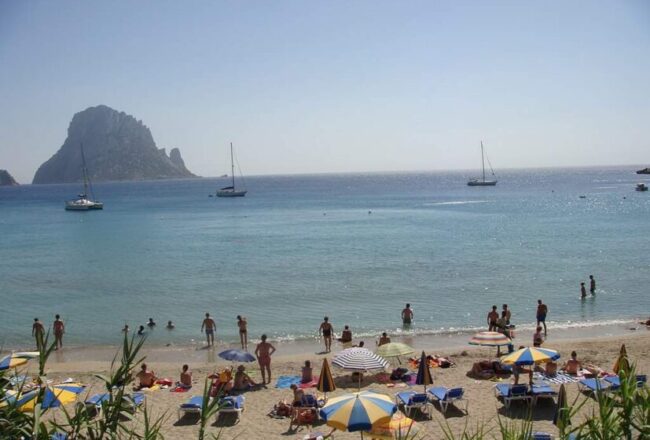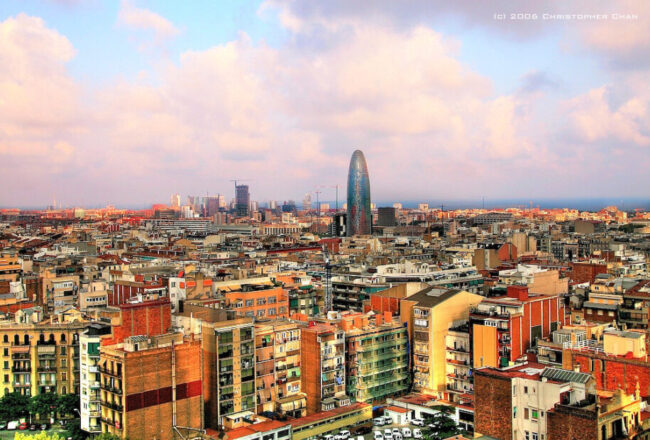Spain has always been a tourist destination, but in recent years the country has witnessed a remarkable surge in tourism, with millions of visitors flocking to its shores annually. In 2023 alone, the country welcomed an unprecedented influx of international tourists, marking a staggering 41.2% increase compared to the previous year.
This surge in tourism not only reflects Spain’s enduring allure as a top travel destination but also underscores its growing popularity as a country with a good quality of life. Among these millions of visitors are countless individuals who, captivated by Spain’s charms—from its vibrant culture to its beaches, history and architecture—find themselves falling in love with the country.
Although many expats plan their migration to Spain ahead of time, for some, a vacation turns into a lifelong love affair with the country, leading them to consider a permanent stay. Yet, this dream of settling in a new country comes with its own set of challenges and intricacies. However, Spain has some flexible immigration policies (If we consider how strict certain countries are with their immigration laws) and a welcoming atmosphere, offering a pathway for these travelers to turn their aspirations into reality.
Tourists turned residents
Many believe that you cannot apply for residency in Spain while you are a tourist, and while this is true, there are several scenarios for which it does not apply, you can find out all your options to enter Spain as a tourist and obtain residency here. However, regardless of your situation, it is best to plan in advance what type of residency or visa you will be applying for, even if you are applying from Spanish soil, to maximize your chances of success.
The phenomenon of tourists transitioning into permanent residents in Spain is driven by a multitude of factors, reflecting both the allure of the country and the evolving dynamics of modern life. One significant catalyst for this trend is the increasing prevalence of remote work opportunities. With advancements in technology, more individuals are finding themselves untethered from traditional office settings, enabling them to work from virtually anywhere in the world. As a result, the prospect of living in a picturesque Spanish village or coastal town becomes not just a dream but a viable reality for many.
But even if you’re not a digital nomad, you don’t have to worry, because Spanish law offers several options. If you find love in Spain or want to reunite with your family, there are also options for staying in the country.
Living and working in Spain
When moving from one country to another, the main concerns for any person are housing and employment, and in the case of Spain, there is a great deal to choose from in both areas. Moving to Spain can be a relatively smooth process, especially for individuals from EU countries or those with bilateral agreements.
Once the decision to relocate is made, finding suitable accommodation becomes a priority. One of the primary considerations is whether to opt for temporary or permanent rental arrangements. While permanent rentals offer stability, they often require additional documentation and commitment. Temporary rentals, on the other hand, provide flexibility, making them particularly appealing for tourists or those in the early stages of settling in Spain.
Finding a job in Spain can vary in difficulty depending on the sector and city, much like any other country. Some industries may offer more opportunities than others, while certain regions might be more conducive to job hunting. Navigating this landscape requires research and possibly adapting one’s job search strategy to suit the local market dynamics.
Highly qualified professionals are eligible for certain special residency programs, so if you think you might qualify, it’s time to polish your resume and apply to a Spanish company. Entrepreneurs are also advised to legally reside in the country, as these contributions are highly valued economically. But even if you do not qualify for any of these, Spain has a good offer of non-specialized work that is worth looking for.
Several cities in Spain stand out as hotspots for job seekers due to their vibrant economies and diverse industries. Madrid, Barcelona, and Valencia consistently rank high in terms of job availability across various sectors. These metropolitan areas not only offer ample job opportunities but also boast a rich cultural scene and a high quality of life, making them attractive destinations for both work and leisure.
Communities of foreigners
In Spain, foreigners from all over the world contribute to the country’s diverse cultural landscape. As a result, expats often find their own communities within the country. The presence of expatriates is particularly prominent in certain regions, with two-thirds of foreign residents residing in four autonomous communities: Catalonia, Madrid, Andalusia, and the Valencian Community. Moreover, seven provinces—Madrid, Barcelona, Alicante, Málaga, Valencia, the Balearic Islands, and Murcia—account for a significant portion, approximately 57%, of the total foreign population in Spain.
As of January 2022, the number of residents from other countries residing in Spanish territory stood at approximately six million individuals. Over the past year, the immigrant population in Spain increased by 659,679 individuals, marking a notable 12% growth. These communities of foreigners enrich Spanish society with their diverse backgrounds, traditions, and perspectives, contributing to the country’s multicultural fabric and fostering a sense of global interconnectedness.
Moreover, the sense of community and support networks that these expatriate communities provide can be invaluable, especially for newcomers adjusting to life in a new country. Whether through language exchange programs, expatriate clubs, or social gatherings, these communities offer a sense of belonging and camaraderie, helping foreign residents navigate the challenges of integration and adaptation.
Spain’s culture, lifestyle, and natural beauty enamor many. Settling down in the country is immensely appealing. Spain offers a diverse array of settings to suit every preference and lifestyle, from the vibrant cosmopolitan atmosphere of cities like Barcelona and Madrid to the tranquil charm of rural villages in Andalusia and the idyllic beaches of the Balearic Islands.




